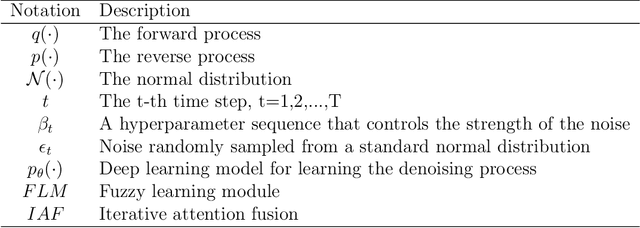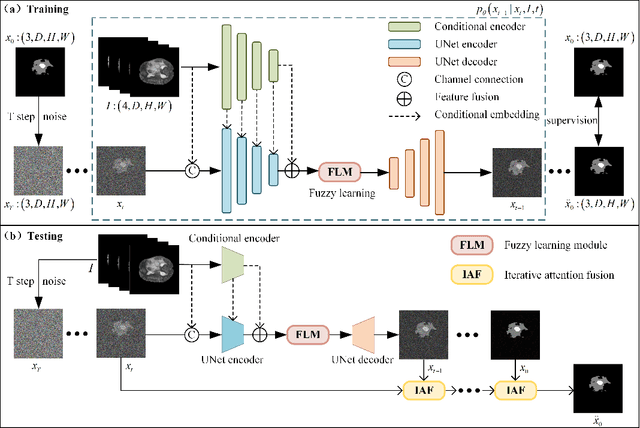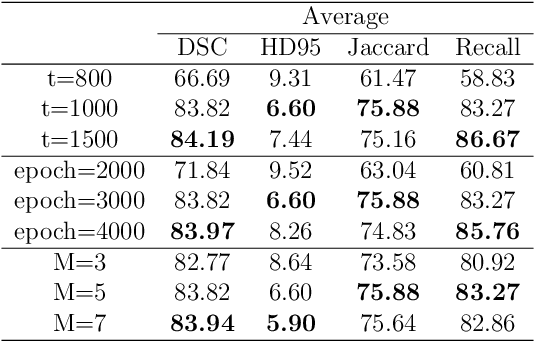FDiff-Fusion:Denoising diffusion fusion network based on fuzzy learning for 3D medical image segmentation
Paper and Code
Jul 22, 2024



In recent years, the denoising diffusion model has achieved remarkable success in image segmentation modeling. With its powerful nonlinear modeling capabilities and superior generalization performance, denoising diffusion models have gradually been applied to medical image segmentation tasks, bringing new perspectives and methods to this field. However, existing methods overlook the uncertainty of segmentation boundaries and the fuzziness of regions, resulting in the instability and inaccuracy of the segmentation results. To solve this problem, a denoising diffusion fusion network based on fuzzy learning for 3D medical image segmentation (FDiff-Fusion) is proposed in this paper. By integrating the denoising diffusion model into the classical U-Net network, this model can effectively extract rich semantic information from input medical images, thus providing excellent pixel-level representation for medical image segmentation. ... Finally, to validate the effectiveness of FDiff-Fusion, we compare it with existing advanced segmentation networks on the BRATS 2020 brain tumor dataset and the BTCV abdominal multi-organ dataset. The results show that FDiff-Fusion significantly improves the Dice scores and HD95 distance on these two datasets, demonstrating its superiority in medical image segmentation tasks.
 Add to Chrome
Add to Chrome Add to Firefox
Add to Firefox Add to Edge
Add to Edge